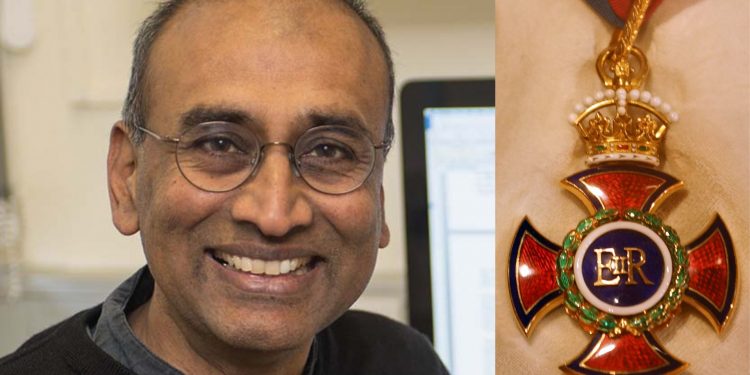Venki Ramakrishnan, an Indian-born Nobel laureate, has received the coveted Order of Merit from Britain’s King Charles III in honour of his outstanding contributions to science.
The molecular scientist, who is 70 and is from the UK, is the first member of the historic order to be appointed by Charles. He is one of six individuals whom the late Queen Elizabeth II elevated to the order before her passing in September.
On Friday night, Buckingham Palace announced, “His Majesty The King has been pleased to make six new appointments to the Order of Merit. Appointments to the Order are made in recognition of distinguished service to the armed forces, science, art, literature, or for the promotion of culture”.
The statement read, “The individuals were chosen by Her Majesty Queen Elizabeth in early September.”
The Order of Merit is a unique badge of honour bestowed by the British sovereign.
The Group Leader of the premier research centre MRC Laboratory of Molecular Biology at Cambridge University, Professor Venki was born in Chidambaram, Tamil Nadu, and completed his biology studies in the US before relocating to the UK.
For his research on the ribosomal structure, he won the Nobel Prize in Chemistry in 2009, and the Queen knighted him in 2012. From November 2015 until November 2020, he served in the Royal Society of the United Kingdom’s president.
“Ironically, the first (Royal Society) fellows to come into contact with India were colonists like Robert Clive and Warren Hastings, or colonial administrators like Thomas Macaulay and Richard Temple. They certainly did not regard Indians as their equals in any way, and would frankly have been astonished that one day, someone born in India would go on to become a fellow, let alone a President of the Society,” in his parting speech to the Royal Society two years ago, Prof. Venki made note of this.
The Indian National Science Academy acknowledges Prof. Venki as a foreign member. He has been observing ribosome activity in higher organisms using electron microscopy more recently. Through this research, we now have a better knowledge of how the ribosome functions and how antibiotics affect it.
He has also previously studied the structure of chromatin and histone, which aids in understanding how DNA is organised in cells.
King Edward VII established the Order of Merit in 1902, and it is awarded to people who have distinguished themselves in the military, the sciences, the arts, and literature, as well as other fields as the king sees fit, or for the advancement of culture.
The broadcaster Baroness Floella Benjamin, the architect Sir David Adjaye, the nursing expert Dame Elizabeth Anionwu, the University of Oxford professor Margaret MacMillan, and the geneticist and biologist Sir Paul Nurse are the other new recipients this week. It can only have 24 members at any given time.
The renowned British conservationist Sir David Attenborough, the artist David Hockney, the former Speaker of the House of Commons Betty Boothroyd, and the computer scientist Sir Tim Berners-Lee who created the World Wide Web are among members of the Order.











